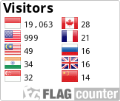Audit Judgement Performance: Self Efficacy dan Kompleksitas Tugas sebagai Anteseden
DOI:
https://doi.org/10.53654/tangible.v7i1.249Keywords:
AUDIT JUDGMENT PERFORMANCE, SELF EFFICACY, TASK COMPLEXITYAbstract
Tujuan penelitian ini adalah untuk menganalisis faktor self efficacy dan kompleksitas tugas sebagai anteseden dari audit judgment performance. Subjek dalam penelitian ini adalah auditor internal pada lingkup Inspektorat kota Makassar sebanyak 61 orang yang mana penilaian dilakukan berdasarkan jawaban pada setiap angket yang diberikan. Hasil penelitian menunjukkan bahwa faktor self efficacy tidak memberikan pengaruh yang signifikan terhadap audit judgement performance. Dengan kata lain bahwa tinggi rendahnya self efficacy yang dimiliki para auditor tidak menjamin dapat memberikan kinerja yang baik atau pun buruk. Berbeda dengan kompleksitas tugas yang justru berpengaruh positif dan signifikan. Hal ini berarti bahwa semakin kompleks tugas yang dihadapi auditor maka semakin maksimal pula kinerja yang akan ditunjukkan.
Downloads
References
Asare, S. K. dan McDaniel, L. S. (1996). The Effects of Familiarity with The Preparer and Task Complexity on The Effectiveness of The Audit Review Process. The Accounting Review, Vol. 71 No. 2, pp. 139-159.
Awang-Hashim, R., O’Neil Jr., H. F., dan Hocevar, D. (2002). Ethnicity, Effort, Self-Efficacy, Worry, and Statistics Achievement In Malaysia: A Construct Validation Of The State Trait Motivation Model. Educational Assessment, 8 (4), 341-64.
Bandura, A. (1977). Self-efficacy: Toward a Unifying Theory of Behavioural Change. Psychological Review, 84 (2), 191-215.
Bandura, A. (1986). Social Foundations of Thought and Action: A Social Cognitive Theory. Englewood Cliffs, NJ: Prentice Hall.
Chang, C. J., Ho, J. L. Y., dan Liao, W. M. (1997). The Effects of Justification, Task Complexity and Experience/Training on Problem-Solving Performance. Behavioural Research in Accounting, Vol. 9, pp. 98-116 (supplement conference papers).
Chen, G., Gully, S. M., dan Eden, D. (2001). Validation of a New General Self-Efficacy Scale. Organizational Research Methods, 4, 62.
Cheng, M. M., Luckett, P. F., dan Schulz, A. K-D. (2003). The Effect of Cognitive Style Diversity On Decision Making Dyad: An Empirical Analysis In The Context Of Complex Task. Journal of Behavioral Research in Accounting, 15: 39-62.
Chung, J. dan Monroe, G. S. (2001). A Research Note on the Effect of Gender and Task Complexity on Audit Judgment. Journal of Behavioural Research, 13: 111-125.
Iskandar, T. M., Sari, R. N., Sanusi, M. Z., dan Anugerah, R. (2012). Enhancing Auditors’ Performance: The Importance of Motivational Factors and The Mediation Effect of Effort. Managerial Auditing Journal, 27 (5), 462-476.
Jamilah, S., Fanani, Z., dan Chandrarin, G. (2007). Pengaruh Gender, Tekanan Ketaatan dan Kompleksitas Tugas terhadap Audit Judgment. Simposium Nasional Akuntansi X.
Meyer, John P. dan Gellatly, Ian R. (1988). Perceived Performance Norm as a Mediator in the Effect of Assigned Goal on Personal Goal and Task Performance. Journal of Applied Psychology, Vol. 73, No. 3, 410-420.
Mitchell, T. R., Hopper, H., Daniels, D., George-Falvy, J., dan James, L. R. (1994). Predicting Self-efficacy and Performance During Skill Acquisition. Journal of Applied Psychology, Vol. 79, No. 4, 506-517.
Pajares, F. (1996). Self-efficacy beliefs in academic settings. Review of Educational Research, 66, 543–578.
Praditha, R. 2018. Kompleksitas Tugas Dan Tekanan Ketaatan Dalam Audit Judgement (Studi Eksperimen Audit Keuangan). In Seminar Nasional Hasil Penelitian & Pengabdian Kepada Masyarakat (Snp2m). (2018, August).
Restuningdiah, N. dan Indriantoro, N. (2000). Pengaruh Partisipasi terhadap Kepuasan Pemakai dalam Pengembangan Sistem Informasi dengan Kompleksitas Tugas, Kompleksitas Sistem dan Pengaruh Pemakai sebagai Moderating Variable. Jurnal Riset Akuntansi Indonesia, 3 (2).
Robin, S. P. dan Judge, T. A. (2007). Organizational Behavior (12th ed.). New York: Pearson Educations.
Ryan, R. M. dan Deci, E. L. (2000). Intrinsic and Extrinsic Motivations: Classic Definitions and New Directions. Contemporary Educational Psychology, 25 (1), 54-67.
Sanusi, M. Z. dan Iskandar T. M. (2007). Audit Judgment Performance: Assessing The Effect of Performance Incentives, Effort and Task Complexity. Managerial Auditing Journal, 22 (1), 34-52.
Schunk, D. H. (1989). Self-efficacy and cognitive skill learning. In C. Ames & R. Ames (Eds.), Research on motivation in education: Goals and cognition (Vol. 3, pp. 13–44). San Diego, CA: Academic.
Schunk, D. H. (1991). Self-Efficacy and Academic Motivation. Educational Psychologist, 26, 207–231.
Sekaran, U. (2000). Research Method for Bussiness. A Skill Building Approach. (Third Edition). USA: John Willey and Sons, Inc.
Wood, R. (1986). Task Complexity: Definition of The Construct. Organizational Behavior and Human Decision Processes, 37 (1), 60-82.
Wood, R. dan Bandura, A. (1989). Social Cognitive Theory of Organizational Management. Academy of Management Review, 14, 361-384.
Zimmerman, B. J. dan Risemberg, R. (1997). Self-Regulatory Dimensions of Academic Learning and Motivation. In G.D. Phye (Ed.), Handbook of Academic Learning. Construction of Knowledge (pp. 105-125). San Diego: Academic Press.
Downloads
Published
How to Cite
Issue
Section
License
Anda dapat menuliskan informasi tentang kebijakan hak cipta.
























